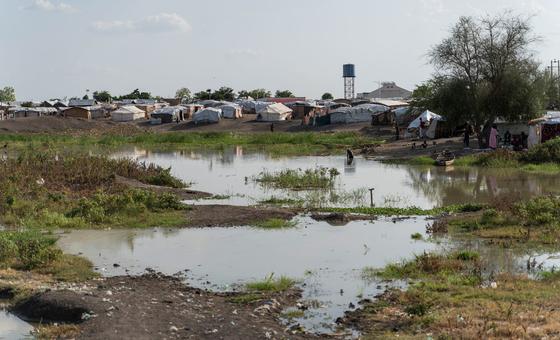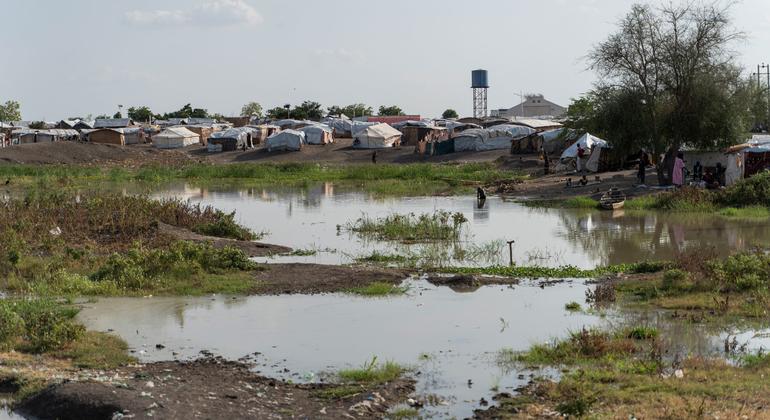
According to UN emergency relief chief Martin Griffiths, a “strike” damaged the roof of the intensive care unit at Southern Hospital in El Fasher Town – the only working hospital in North Darfur state – where medical supplies are running dangerously low.
Some 800,000 people live in and around El Fasher Town where “countless lives are at stake. Sudan is at a tipping point,” Mr. Griffiths said in a message on X late Sunday.
Key city at stake
In an update on the hostilities, the UN aid coordination office (OCHA) reported that dozens of civilians had been killed in renewed heavy fighting last Friday between the Sudanese Armed Forces and Rapid Support Force (RSF) soldiers in and around the city – the last one in North Darfur not yet under RSF control, it has been reported.
“The clashes, including airstrikes and the use of heavy weapons, started mid-morning in the eastern part of El Fasher Town and continued until 6.30pm,” said OCHA. “The clashes extended into the centre of the town, the outskirts of the main market and into neighbourhoods, resulting in civilian deaths and injuries.”
Before the latest bloodshed, humanitarians warned that months of escalating violence around El Fasher Town had been behind “persistent” aid access obstructions that had hampered the sustained flow of aid and basic commodities, “pushing people to the brink of famine”.
Nearly 25 million need help
In Darfur alone, some nine million people need humanitarian assistance today, but a staggering 24.8 million across Sudan – almost one in two people in the country – now require help from the UN and aid partners.
The latest assessment of hunger levels across Sudan from late March were already alarming, even before this latest escalation.
It revealed that 17.7 million people – more than one-third of the country’s population – faced acute food insecurity (IPC3) or worse, with level three indicating “Crisis” and five indicating “Famine”.
Of these, 4.9 million people “are on the brink of famine”, experts at the globally respected Integrated Food Security Phase Classification initiative warned. “Nearly nine out of 10 people in IPC4 are in conflict-affected areas in Darfur, Kordofan, Khartoum and Jazirah. With the onset of the lean season from April onwards, food insecurity is expected to further worsen,” their assessment noted.
Millions of lives upended
According to the UN migration agency, IOM, about 570,000 people have been displaced in North Darfur state in the last 13 months and 6.7 million have been internally displaced, while 1.8 million have fled across Sudan’s border, UN refugee agency (UNHCR) data shows.
Before reports of renewed clashes on Sunday in and around El Fasher Town, OCHA said that large numbers of people had moved from the east and northwest to the south.
Media reports cited the medical director of the El Fasher Town hospital describing that patients were being treated in any available space within the facility, including on balconies. Echoing concerns over damage to medical equipment and supplies, the director indicated that a key supply line to the rest of Sudan had been cut off by the RSF.



